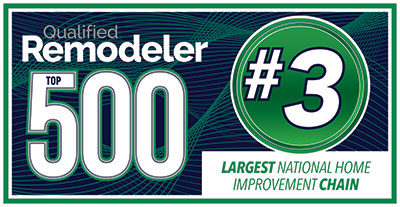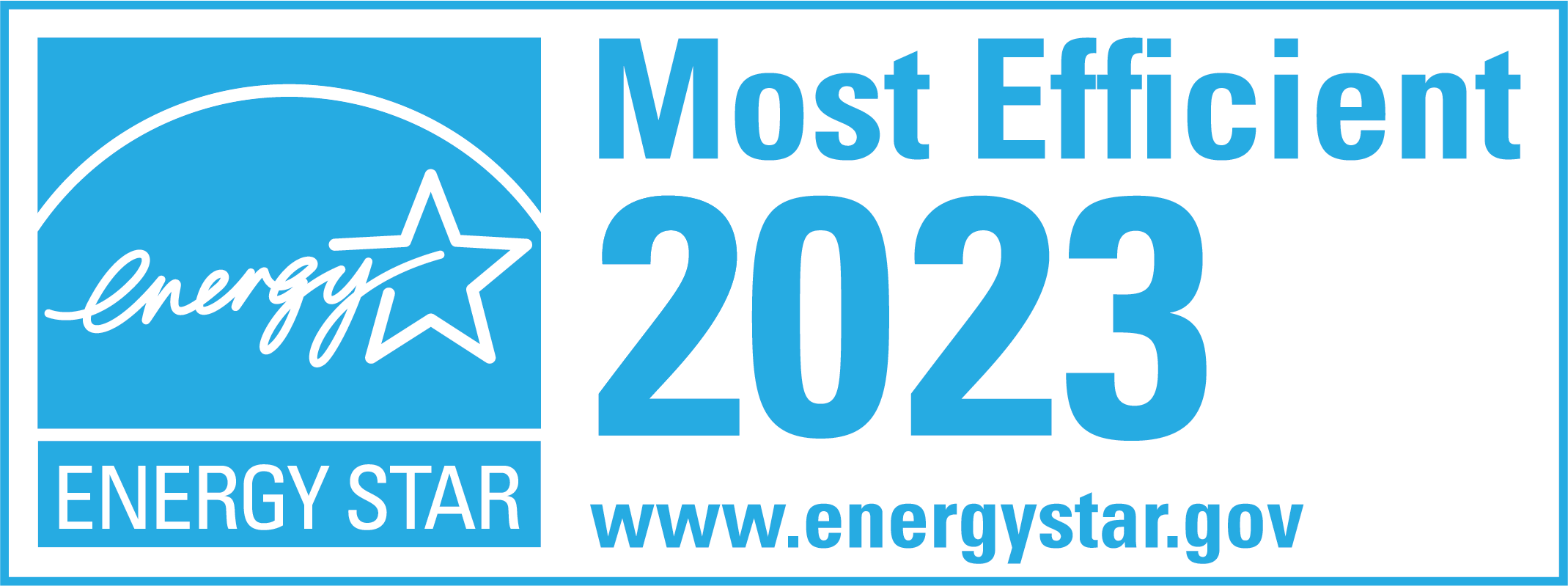Are Vinyl Windows Any Good?
If you’re considering replacing your windows, you may have come across vinyl windows as a potential option. But are vinyl windows any good? This article will dive into vinyl windows, explore their advantages and disadvantages, and discuss how they compare to other window materials. We will also analyze vinyl windows’ cost and energy efficiency, helping you make an informed decision for your home.
Understanding Vinyl Windows
Vinyl windows have become increasingly popular due to their durability, low maintenance requirements, and energy efficiency. But what exactly are vinyl windows?
Vinyl windows are made from a synthetic material called polyvinyl chloride (PVC). This material has many advantages, including its resistance to rot, fading, and warping. Vinyl windows are designed to withstand the harshest weather conditions, making them a great choice for homeowners in all climates.
When it comes to energy efficiency, vinyl windows are a top choice. They are designed with multiple chambers within the frame, which act as insulation barriers. These chambers help to reduce heat transfer, keeping your home cooler in the summer and warmer in the winter. This provides a comfortable living environment and helps reduce energy consumption and lower utility bills.
One of the key benefits of vinyl windows is their low maintenance requirements. Unlike traditional wood windows that require regular painting and sealing, vinyl windows are virtually maintenance-free. The PVC material is moisture-resistant, meaning you don’t have to worry about rotting or warping. Additionally, vinyl windows are easy to clean. A simple wipe with a damp cloth is usually all it takes to keep them looking pristine.
What are Vinyl Windows?
Vinyl windows are windows made from PVC, a durable and low-maintenance material. They are known for their energy efficiency and ability to withstand various weather conditions.
In addition to their durability and energy efficiency, vinyl windows offer a wide range of design options. They come in various styles, colors, and finishes, allowing you to choose the perfect window to complement your home’s aesthetic. Whether you prefer a classic double-hung window or a sleek casement window, a vinyl window style suits your taste.
Furthermore, vinyl windows are not only limited to residential use. They are also commonly used in commercial buildings, offices, and even industrial spaces. The versatility of vinyl windows makes them a popular choice for a wide range of applications.
The Manufacturing Process of Vinyl Windows
The manufacturing process of vinyl windows involves extruding PVC into various shapes and sizes. The PVC is heated, melted, and then molded into the desired shape of the window frame. Once cooled, the vinyl retains its shape and strength, providing a reliable and long-lasting window frame.
The PVC material can be customized to meet specific requirements during the manufacturing process. This means vinyl windows can be manufactured in different thicknesses, enhancing insulation and structural integrity. Additionally, manufacturers can add additives to the PVC material to improve its UV resistance, making the windows more resistant to fading and discoloration.
After the vinyl window frames are molded, they undergo rigorous quality control checks to meet industry standards. This includes testing for strength, durability, and proper fit. Once the frames pass these tests, they can be installed in homes and buildings, providing years of reliable performance.
In conclusion, vinyl windows offer numerous benefits, from their durability and low maintenance requirements to their energy efficiency and design versatility. Whether you’re upgrading your home’s windows or searching for the perfect ones for a commercial space, vinyl windows are a reliable and cost-effective choice.
The Pros and Cons of Vinyl Windows
Like any other window material, vinyl windows have their own advantages and disadvantages. Let’s explore them in detail.
Advantages of Vinyl Windows
Vinyl windows offer several advantages that make them a popular choice among homeowners:
- Energy Efficiency: Vinyl windows are excellent at insulating your home, helping to reduce energy loss and lower your energy bills. The multi-chambered design of vinyl frames and the use of insulated glass contribute to their superior energy efficiency.
- Durability: Vinyl windows are highly resistant to rot, rust, and corrosion, making them a long-lasting option for your home. Unlike wood windows, vinyl windows do not require regular maintenance to prevent decay or damage caused by moisture.
- Low Maintenance: Unlike wood windows, vinyl windows do not require painting or staining. They can be easily cleaned with soap and water, saving you time and effort in maintenance tasks.
- Cost-Effective: Vinyl windows are generally more affordable than other materials such as wood or aluminum. Their lower cost, durability, and energy efficiency make them a cost-effective choice for homeowners.
- Noise Reduction: Vinyl windows have excellent sound insulation properties, helping to reduce external noise and create a quieter and more peaceful indoor environment.
- Design Options: While vinyl windows may not offer as many design options as wood or aluminum windows, manufacturers now offer various styles, colors, and finishes to suit various architectural styles and personal preferences.
Disadvantages of Vinyl Windows
Despite their many advantages, vinyl windows also have a few drawbacks to consider:
- Color Limitations: Unlike wood or aluminum windows, vinyl windows are not easily customizable in color. Once installed, changing the color of vinyl windows can be challenging. However, many manufacturers now offer a variety of pre-finished color options to choose from.
- Less Architectural Detail: Vinyl windows may lack the intricate architectural details available in wood or aluminum windows. If you are looking for windows with ornate designs or historical authenticity, vinyl windows may not be the best choice.
- Potential for Cracking: In extreme temperatures, vinyl windows can expand and contract, potentially leading to cracking or warping. However, advancements in vinyl window technology have significantly reduced this issue, and high-quality vinyl windows are designed to withstand temperature fluctuations without compromising their structural integrity.
- Environmental Impact: While vinyl windows are durable and long-lasting, they are made from PVC (polyvinyl chloride), a petroleum-based material. The production and disposal of PVC can have negative environmental effects. However, many manufacturers now offer eco-friendly options, such as recycled or low-emission vinyl windows, to mitigate these concerns.
Comparing Vinyl Windows to Other Window Materials
Now, let’s compare vinyl windows to other popular materials such as wood and aluminum.
Vinyl vs. Wood Windows
Wood windows have a timeless and natural aesthetic, but they require regular maintenance and can be prone to rotting and warping. Vinyl windows, on the other hand, offer comparable durability and energy efficiency without the need for extensive maintenance.
Vinyl vs. Aluminum Windows
Aluminum windows are lightweight and often used in commercial buildings. While they are durable but not as energy efficient as vinyl windows. Vinyl windows offer better insulation and can help reduce energy consumption.
Cost Analysis of Vinyl Windows
One essential factor to consider when choosing windows for your home is the cost. Let’s break down the cost analysis of vinyl windows.
Initial Purchase and Installation Costs
Vinyl windows are generally more affordable than wood or fiberglass windows. Their prices vary depending on factors such as size, style, and any additional features or customization.
The installation cost will also depend on the project’s complexity, the number of windows replaced, and the region where you live.
Long-term Maintenance Costs
One of the significant advantages of vinyl windows is their low maintenance requirements. They do not require painting, staining, or sealing, saving you time and money on maintenance costs in the long run.
However, keeping the windows clean and inspecting them regularly is essential to ensure they remain in good condition.
Energy Efficiency of Vinyl Windows
Energy efficiency is crucial for homeowners seeking to reduce their energy consumption and lower their utility bills. Let’s explore the energy efficiency of vinyl windows.
Insulation Properties of Vinyl Windows
Vinyl windows offer excellent insulation properties, helping to keep your home warm in the winter and cool in the summer. Their multi-chambered design and weatherstripping prevent air leakage, reducing drafts and increasing energy efficiency.
Impact on Energy Bills
By installing energy-efficient vinyl windows, you can significantly impact your energy bills. The insulation properties of vinyl windows help reduce heating and cooling costs, providing energy savings over time.
In conclusion, vinyl windows have numerous advantages, making them a good choice for many homeowners. They offer durability, energy efficiency, and low maintenance requirements. While they may have some limitations regarding color options and architectural detail, their affordability and long-term cost savings make them attractive. When comparing vinyl windows to other materials, such as wood and aluminum, consider factors like aesthetics, maintenance, and energy efficiency. Ultimately, the decision will depend on your needs, preferences, and budget.
Call us at 214-399-9592 to discuss window pricing and availability. Our replacement window services are limited to North Texas cities, from Irving and Dallas to Frisco and Rockwall.






